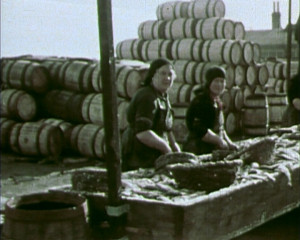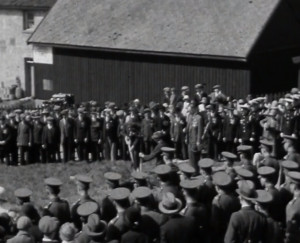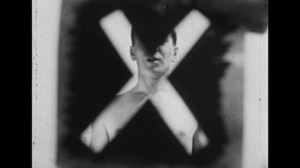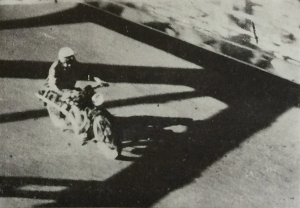
A short film documenting the herring fishing industry of Yarmouth, Norfolk, with a specific focus on the women who work on the docks preparing the fish after they have been caught.

This film depicts the 1935 Silver Jubilee of King George V in Suffolk, UK.

"An anti-war preachment, boldly and ably done in allegory with but three characters, and two are only seen briefly" American Cinematographer, May, 1938, 204.
English language translations of the film are The Soldier's Tale or A Soldier's Story.
short film
"Il film descrive le sensazioni che la musica popolare di un “pianino” girovago produce in determinati individui che si trovano in altrettante determinate situazioni"
"The film portrays the feelings that the popular music of a wandering “little piano” produces in particular individuals in similarly particular situations."
—Notizario delle sezioni cinematografiche dei gruppi universitari fascisti a cura del ministero della cultura popolare, September 1938 p. 9
"doc. scientifico"/scientific documentary

"a soggetto breve"/ short fiction
"EVA E LA MACCHINA
Eva e la Macchina soggetto e regla di Leone Viola, fotografia e montaggio di Fernando De Marzi, interpreti Parisina Poggi, Carlomaria Dermal, Guido Cerato, svolge come tema il contrasto e nello stesso tempo il rapporto tra il maschio in possesso della femmina e il motociclista nel possesso della sua macchina. L'ambiente e per una parte primitivo e naturale, per l'altra invece si svolge presso un ponte di ferro e un passaggio a livello. I due motivi corrono parallelamente sino alla fine, allorché il Viola persegue il motivo della macchina sola, sino al finale gocciolare dell'olio, il cui parallelo rimane soltanto presunto. Eva e la Macchina si avvale di un ottimo ritmo di montaggio, dove al crescendo assai bene ottenuto della parte centrale succede il finale altrettanto realizzato nella sua calma compostezza."
"EVA AND THE CAR
Eva e la macchina (Eva and the Machine), screenplay and direction by Leone Viola, photography and editing by Fernando De Marzi, starring Parisina Poggi, Carlomaria Dermal, Guido Cerato, develops as its theme the contrast and simultaneous relationship between the male in possession of the female and the motorcyclist in possession of his machine. The environment is on the one hand primitive and natural, and on the other, the film takes place near an iron bridge and a level crossing. The two motifs run parallel until the end, when Viola pursues the motif of the machine alone, until the final drip of oil, whose parallel remains only presumed. Eva and the Machine avails itself of an excellent rhythm of montage, where the very successful crescendo of the central part is followed by the finale equally successful in its calm composure."
— Il ventuno 24 (Review of the G.U.F. of Venice) January 1935, p. 15
"doc. a fantasia"/avant-garde documentary
Total Pages: 299